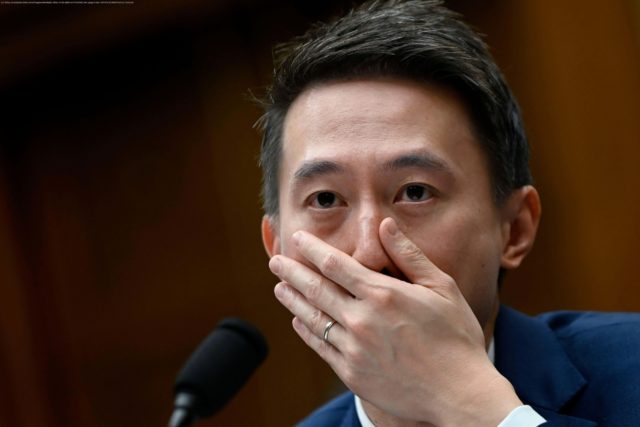Shou Zi Chew went to Congress and got a verbal beating.
Should the United States end up in a new “cold war” with China, an early frontier will be the battle over TikTok’s data practices and ownership.
That was made apparent during Thursday morning’s hearing of the House Energy and Commerce Committee—referred to repeatedly as the “most bipartisan” group in Congress—for which TikTok CEO Shou Zi Chew was invited to testify about his megapopular app’s data and safety standards. Although lawmakers’ queries spanned a broad range of topics, including teen suicides, platform promotion of violence and drugs, and censorship of Black TikTokkers, the core focus was all on China. What data does TikTok collect from U.S.-based users, especially its overwhelmingly young audience? Does that data end up with employees of TikTok’s China-based parent corporation, ByteDance? And from there: Can the Chinese Communist Party spy on vulnerable Americans?
“From the data it collects to the content it controls, TikTok is a grave threat of foreign influence in American life,” the committee’s chair, GOP Rep. Cathy McMorris Rodgers, said in her opening statement. “It’s been said it is like allowing the Soviet Union the power to produce Saturday morning cartoons during the Cold War, but much more powerful and much more dangerous.”
There were no pulled punches throughout the hearing, nor did Chew seem able to assuage Congress’ concerns about the myriad China-related issues with his app. The words communist and spying and access were used a lot. The stakes, to hear it from committee members, appeared to be of immediate urgency. At one point, Pennsylvania Rep. John Joyce deemed TikTok “the spy in Americans’ pockets” and “a company that cannot be trusted.”
Rodgers detailed the allegations that have been raised against TikTok over time: the deep data logging; the connections with the Chinese government, through CCP members employed at ByteDance as well as alleged coding backdoors; media reports of ByteDance and TikTok employees spying on Americans. But above all, Rodgers said, the biggest issue was that “we do not trust TikTok will ever embrace American values—values for freedom, human rights, and innovation. … Your platform should be banned.”
Not all committee members echoed the ban call, but they were unanimous in agreeing that certain steps had to be taken: that ByteDance should divest from TikTok’s U.






